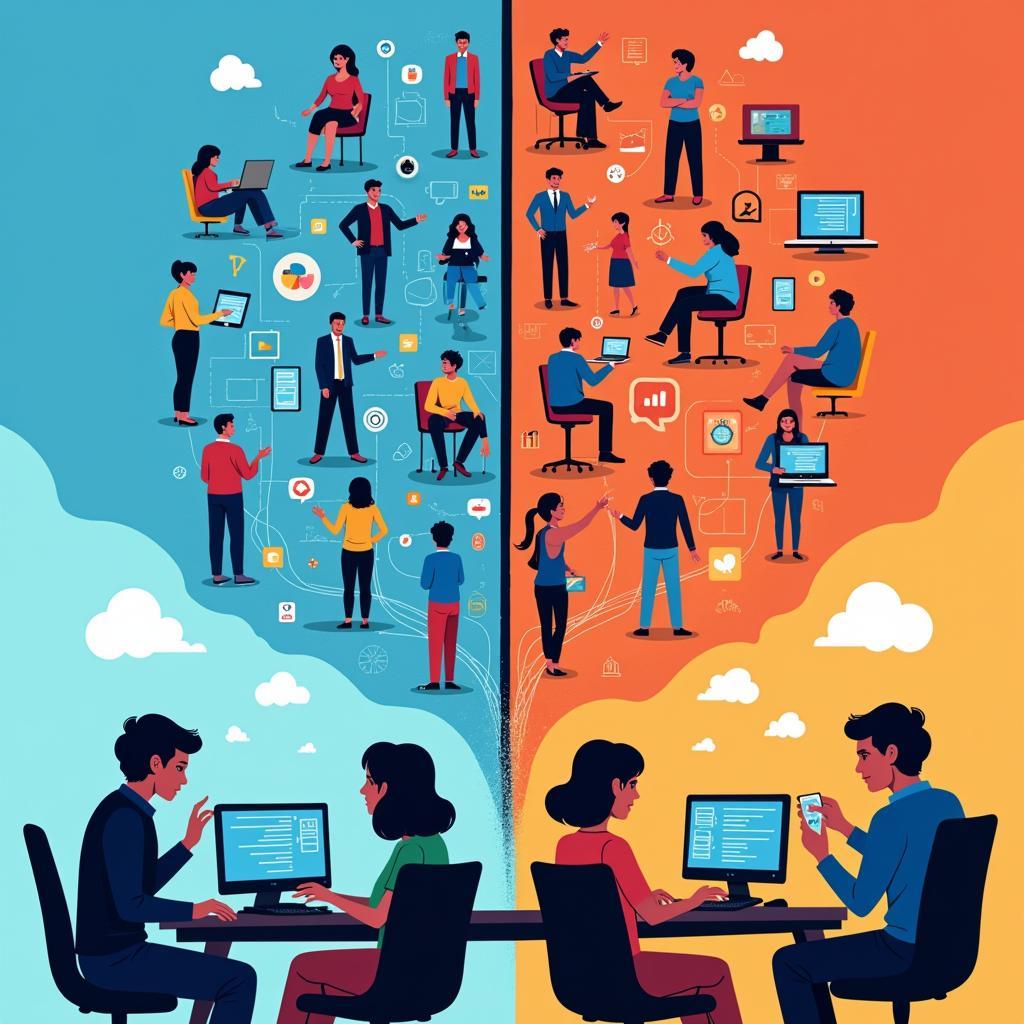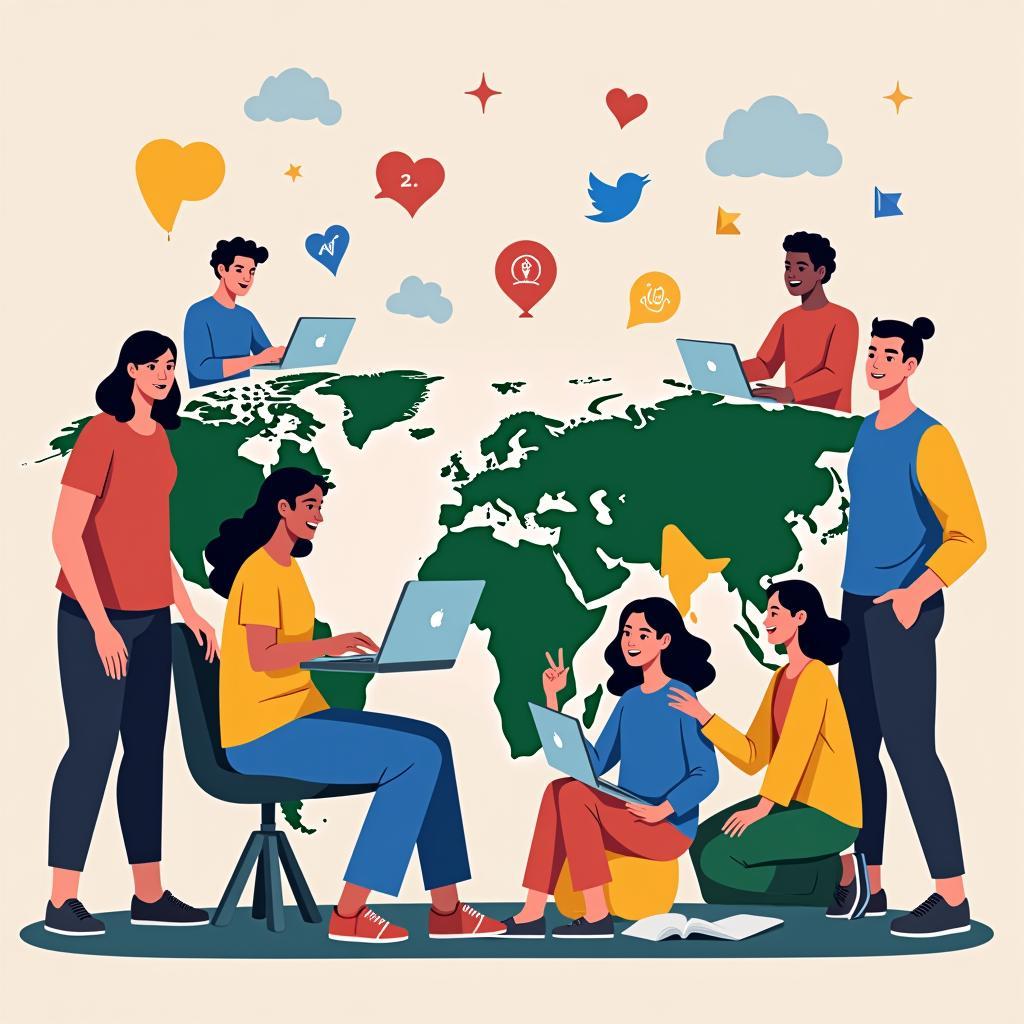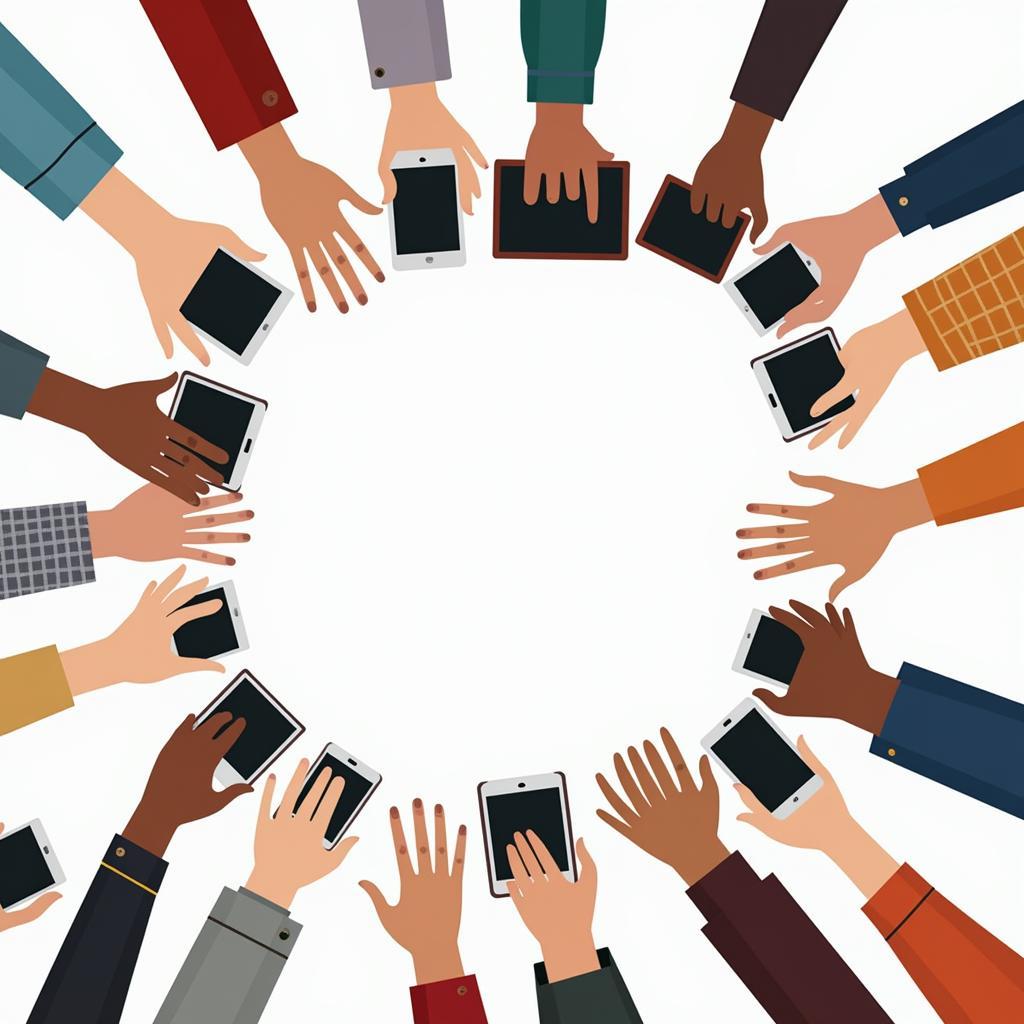The internet, a vast and ever-evolving network, has fundamentally reshaped our world. It has revolutionized communication, democratized information, and connected us in ways unimaginable just a few decades ago. Yet, alongside its undeniable benefits, the internet has also unleashed a wave of challenges, raising a crucial question: has it made society better or worse?
 The impact of internet on society
The impact of internet on society
A Double-Edged Sword: The Two Sides of the Internet
The internet’s impact on society is akin to a double-edged sword. On one hand, it has empowered individuals, fostered innovation, and bridged geographical barriers. On the other hand, it has fueled polarization, facilitated the spread of misinformation, and exacerbated existing inequalities.
The Power of Connection and Information
One of the internet’s most profound contributions is its ability to connect people across continents, cultures, and ideologies. Social media platforms, messaging apps, and video conferencing tools have enabled us to stay in touch with loved ones, build communities around shared interests, and engage in cross-cultural dialogue.
Moreover, the internet has democratized access to information like never before. With a few clicks, we can access vast libraries of knowledge, learn new skills, and stay informed about current events. This free flow of information has empowered individuals, challenged traditional power structures, and fueled countless social and political movements.
 Access to online education and global connectivity
Access to online education and global connectivity
The Dark Side of the Digital Age
However, the internet’s potential for good is often overshadowed by its darker side. The same tools that connect us can also be used to spread hate speech, incite violence, and sow discord. Social media algorithms, designed to maximize engagement, often prioritize sensationalized and divisive content, contributing to echo chambers and filter bubbles where individuals are exposed only to information that confirms their existing biases.
Furthermore, the internet has facilitated the spread of misinformation and disinformation, eroding trust in traditional media outlets and institutions. The rise of fake news, deep fakes, and online conspiracy theories has created a climate of uncertainty and suspicion, making it increasingly difficult to discern fact from fiction.
Bridging the Digital Divide
Another challenge posed by the internet is the digital divide, the gap between those who have access to technology and those who do not. This divide often mirrors existing socioeconomic inequalities, exacerbating disparities in education, healthcare, and economic opportunity. While the internet has the potential to empower marginalized communities, its benefits are often out of reach for those who lack access to affordable devices, reliable internet connections, and digital literacy skills.
Cultivating a More Responsible and Inclusive Digital Future
So, Has The Internet Made Society Better Or Worse? The answer, like the internet itself, is complex and multifaceted. The internet is a tool, and its impact depends on how we choose to use it.
To harness the internet’s power for good, we need to cultivate a more responsible and inclusive digital future. This requires addressing issues like online safety, digital literacy, and the ethical development and use of artificial intelligence. We must work together to create a digital world that reflects our shared values of empathy, respect, and understanding.
 Promoting digital citizenship and responsible internet use
Promoting digital citizenship and responsible internet use
Conclusion
The internet has undeniably transformed our world, presenting us with both unprecedented opportunities and challenges. By acknowledging both its potential and its pitfalls, and by working together to mitigate its risks and amplify its benefits, we can shape a digital future that empowers individuals, fosters understanding, and promotes peace. The internet’s legacy will ultimately be determined not by the technology itself, but by our collective choices and actions.